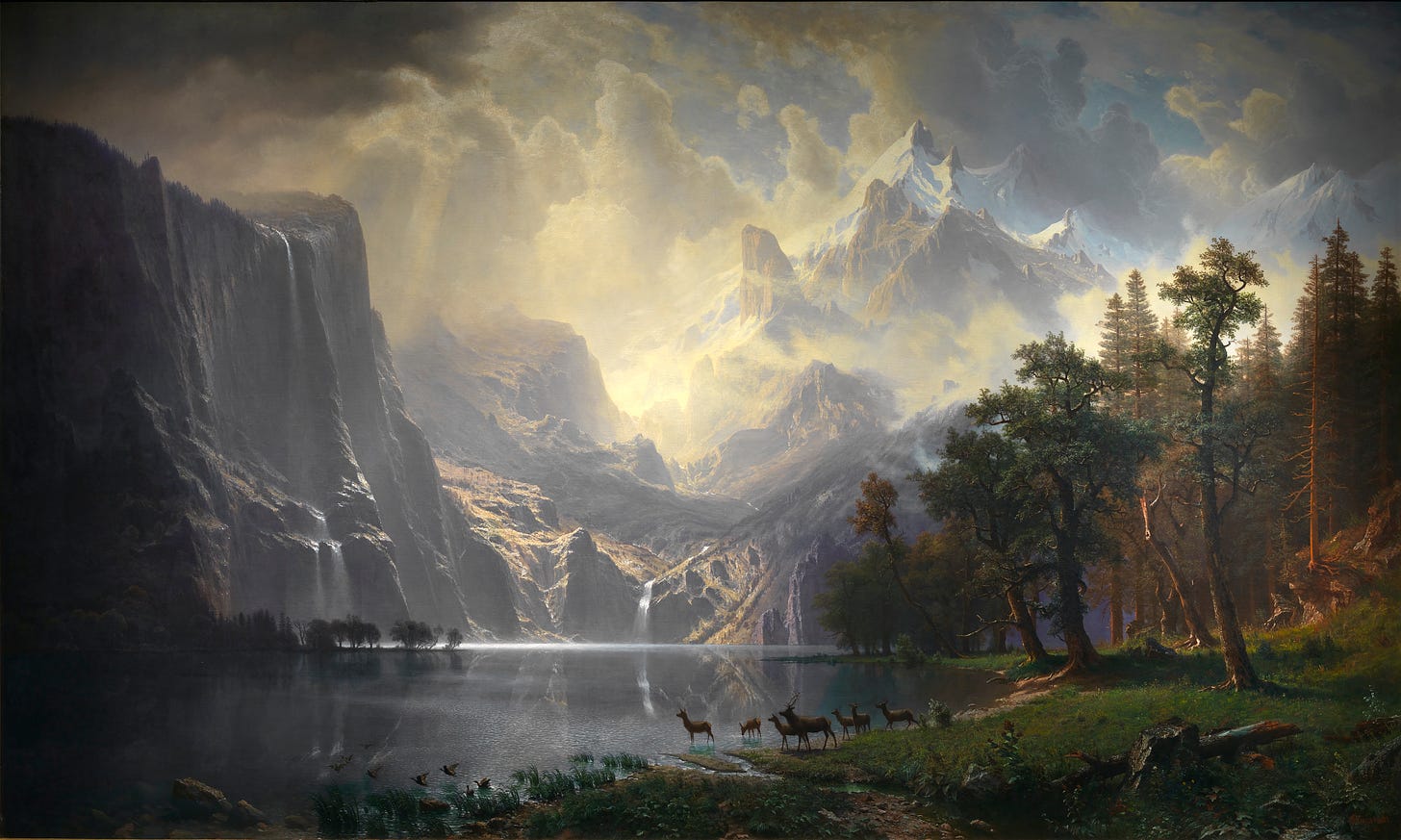The Naked Truth
Betrayal Story: Chapter Three
Then the eyes of both of them were opened and they realised that they were naked. So they sewed fig leaves together to make themselves loin cloths.
The man and his wife heard the sound of the Lord God walking in the garden in the cool of the day, and they hid from the Lord God among the trees of the garden. But the Lord God called to the man. ‘Where are you?’ he asked. ‘I heard the sound of you in the garden.’ He replied, ‘I was afraid because I was naked, so I hid.’ ‘Who told you that you were naked?’ he asked ‘Have you been eating of the tree I forbade you to eat?’ (3:7-11; cf 2:25)
Figures
Alas, happy naked innocence has passed like longshore sands following a great storm, like magnolia petals after a hard frost, like… ok, you get the idea: childhood’s dewy-eyed nostalgia and carefree abandon have evaporated with the arrival of this harsh new dawn of self-consciousness. Notice the clever play on the usual idea of opening eyes. The reader knows the couple haven’t been walking round with their eyelids sealed shut, so it clearly means the truth has set in. They now see and perceive in a fundamentally worse way. Sinsight?
Their final vision with the benefit of pristine perspective was the shimmering skin of that gloriously alluring but forbidden fruit. Now their own once glorious skin has become repugnant and foreboding to their sight. Tellingly, they make loin cloths. There’s a specific association with hiding the genitals – the very parts of their bodies that signify the fleshy communion so rapturously expressed in 2:23. Complicity in evil has poisoned their intimacy. They’re now also experiencing vulnerability. Precisely more exposed for their pathetic attempts at concealment. Whereas before, God took care of all their needs, now they’re having to do something for themselves, and their quick-fix – fig leaves I ask you! – is a tragicomic bodge job. Yes, they’ve quite literally stitched themselves up.
Estrangement
We might take a moment to appreciate the metaphorical camera work here. As explored before, in our opening two chapters the lens of camera one is firmly trained on God. Well, as we know, capturing God directly on film isn’t exactly possible. Rather, the writers seek to reveal who God is by portraying Him gloriously creating.
Creation One is pure panorama; wide lens sweeps; contemplative awe in the presence of breathtaking beauty; a memory fragment of sweet synergy between heaven and earth. As the story unfolds, the camera resolution gently increases from grand scale construction to particular ornamentation and enhancement (with special focus on the crowning wonder of creation that is humanity) before zooming back out to an image of the whole of creation slumbering in God’s restful embrace. The mood is free and expansive. I’ve this in mind…
[Albert Bierstadt (1830-1902), Among The Sierra Nevada, California (1868), Public Domain]
overlaid with this from Rachmaninov.
Creation Two also begins with God, but in media res, ie in the mi(d)st of it, and so is quickly all about the business of fashioning of humans and their verdant garden home. The work of camera one is now dynamic, on the ground, wildlife documentary detailed. And God’s right there, as though sharing and also enjoying the sacred space. All good. But as the camera pans about it inadvertently captures a golden grove bathed in mesmeric light and an incongruous predatory shape within. Switch to camera two. We see the couple suddenly drawn towards it, witness temptation and transgression unnervingly close, feel the corrupt libido of a Hollywood lens bending its obsessive attention upon the nakedness of the woman. And with all that fruity flesh on display, is it any wonder we’ve lost perspective and momentarily forsaken the narrative thread?
What brings us back? A sound. As of a word first heard. Yet what exactly is the sound of God garden walking in the cool of day? Blissful whistling? Gandalfesque humming? The heavy thump of giant doom-feet? We’re still with camera two here, observing the couple’s attempts to hide in fearful shame against a backdrop of tumbling ferns. There can be no panning away or zooming out now and the resolution level is only going to intensify because obviously we’re meant to feel this tragic story as our own. The guilt of the rabbits-in-the-headlights couple swirls all around us. Having attempted to conceal themselves from each other they now make a similarly pathetic attempt to conceal themselves from God. It’s deliberate irony that they’re using trees for the purpose. And the normally welcomed cool on a blazing hot day carries for them a sudden chill.
Now dramatic irony is redeployed to brilliant effect. God has to call out, ‘Where are you?’ Such pathos! The loss of communion is crushing. They’re already upon different paths. Camera two reveals dread registering on our couple’s faces which serves to sharpen the distance of God’s voice. Only now do we finally switch back to camera one to hear the man’s brittle and fearful admission landing before God, and feeling His utter heartbreak at discovering this egregious betrayal. After everything. This.
Refashioning
Ok, let’s lighten the mood a little with an excursus into the world of plant fashion. There’s another aetiology here. Clothes-making appears to be a very ancient skill in modern humans and a key adaptation leading to environmental dominance. Never take a wardrobe for granted! The story doesn’t reveal exactly where a naked person might stow a sewing kit they never knew they needed, because we know that’s not the point. Apart from covering up as a metaphor for disguising themselves and their guilt (like the serpent’s skin), it also represents a dawning awareness, as mentioned, that they’re now going to have to fend for themselves.
Skipping ahead a tad, it’s a poignant close to the whole sorry tale that even God can’t bear to see the couple turfed-out of Eden’s blessed biome and into the encroaching cold flaunting the utter fashion fail that is fig leaf undies.
The Lord God made clothes out of skins for the man and his wife, and they put them on, (3:21).
Leather’s clearly de rigueur where they’re headed, but there’s no hint that God’s own creatures have been killed in the making of these garments. He simply creates the skins directly. Still, skin again! It’s another small sign of newly invasive death and flayed cosmic harmony. They’re literally clothed in the emblem of their own guilt. Notice there’s no grumbling, though – they just slip on the skins, as dumb as animals themselves. Their only consolation, (though an enormous one all things considered), is that God can’t help Himself continuing to care for them.
Yet who could have known that this small sign would one day become the sign of all signs? That in the supreme act of loving reparation, God would instead hand over His very own skin to be bruised and split like fruit, that we might all cast off our rags and be clad once more in the bright birthday suit of eternity.
my flesh, for the life of the world. Jn 6:51
Header photo: Engin Akyurt, Unsplash





Beautifully written, lovely insights. Thank you (again)